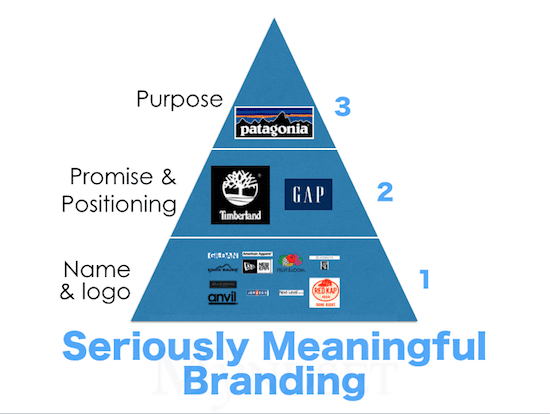Once I lay into my vision of what real branding is — and what needs to happen in today’s internet-enabled world with the new generation of customers — I have often been asked whether it’s actually worth developing a meaningful brand? As a result, I thought I would lay down my opinion in a single blog post.
Why a brand for an SMB?
For the business owner, building a strong brand is useful for three major reasons, in my opinion.
- The brand — when built well — is the signature of confidence.
- The brand is a non-tangible asset that has material value at the time of a transaction.
- The brand is a way to elevate your daily work to something more meaningful.
Does everyone need a brand?
To the question of whether every entrepreneur should be branding, the short answer is that it depends. And, even if I am a brand guy, I do believe that not all companies need necessarily to create a BRAND. Here are some examples where developing a brand might not be so critical:
- The company is just a way to afford a lifestyle, today.
- The “company” is a sole-trader and will likely not have other employees or an after-life once the sole trader has retired.
- The domain is obscure (very niche) and the number of clients is extremely limited and known.
- The domain is unethical. (At best, this requires a very different type of brand and communication strategy!)
In general, though, I believe that a brand not only brings value to your enterprise, no matter the size, it also is a way to signify meaning. I would encourage any SMB owner to go for a seriously meaningful brand! {♺ Tweet this!}
Is it worth it?
The question of expense (in terms of time, effort and money) becomes multivariate in that the key question is what is the objective of the enterprise? {♺} If your company has aspirations and ambition, then branding becomes proportionately less optional. That said, there are various levels of branding and to each the effort and cost can rise almost geometrically.
- Level 1: Your brand is a name, a logo, a slogan …
- Level 2: Your brand is a promise you stand behind, a positioning and a position you stand for, with a mission statement.
- Level 3: You are an organization with a meaningful purpose whose employees and stakeholders represent the brand and are long-term advocates. In other words, you don’t say what you are, you are it and you do it and, then, others say who and what you are.
Outside of the objective for the business, especially as one looks at the Level 3 full brand concept, the question is whether the CEO/founder is prepared to step up and/or pay the price to be the brand him or herself. It’s not that sleazy individuals can’t build up large businesses. Examples of such abound (think Evan Spiegel at Snapchat, now valued at $15B, numerous ego-headed bully CEOs and many of the more sharky corporate raiders…). However, I would certainly question the value of their brand long-term. Snapchat, with its 2 billion daily views, is an interesting point in case. Today, its “brand” is the user experience. However, a brand cannot be limited to just the product.{♺} Are Snapchat employees advocates for the way Spiegel acts? For example, I continue to believe that Amazon, whose growth has been phenomenal and whose customer service is legendary (in any event against its competition), is going to struggle longer term. I have argued this because Amazon is not creating a deeper brand, where the employees and stakeholders are engaged in living a more powerful purpose that lowering costs and fattening shareholders’ wallets.
For the SMB, a brand is an opportunity to turn a business into a more meaningful project, one that encourages leaving behind a significant legacy.{♺}












